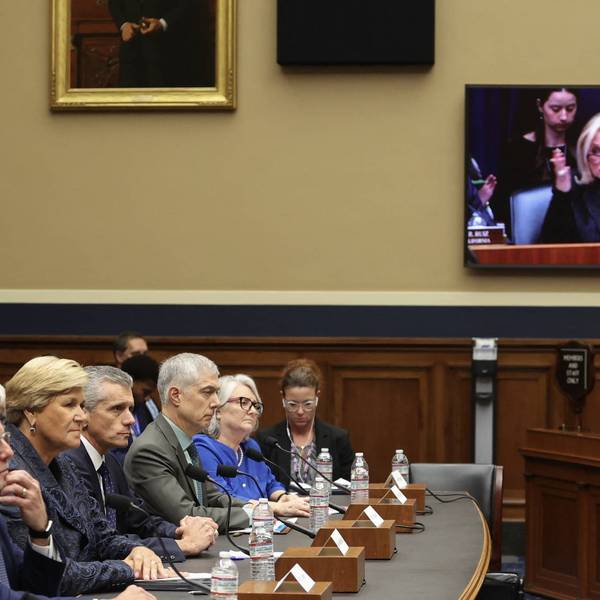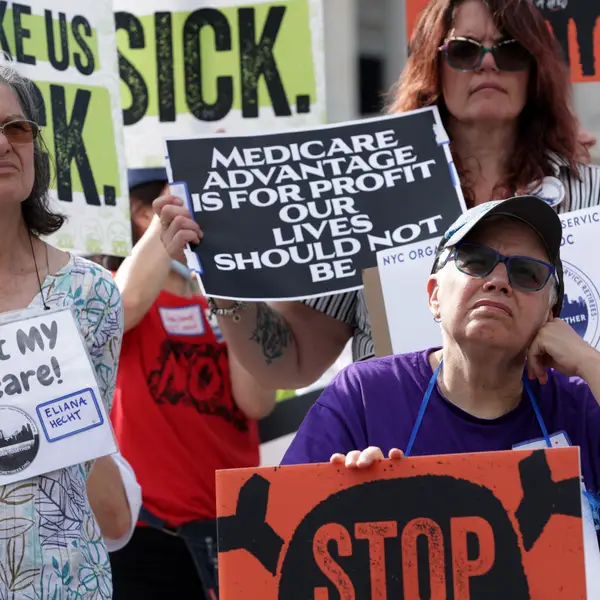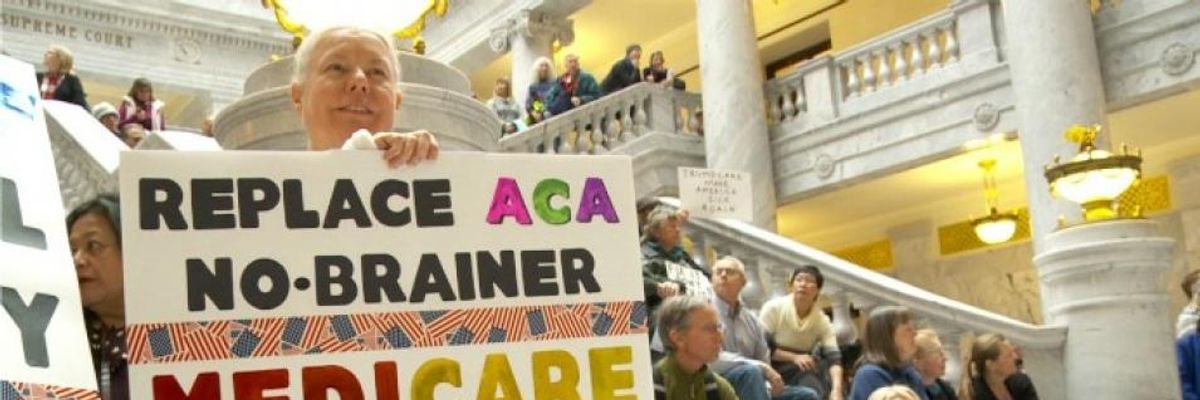When I talk to friends, family, and colleagues about Medicare for All, sometimes someone asks, "but don't people like their insurance?" It's not hard to see where they got that idea. America's Health Insurance Plans (AHIP), the leading lobbyist for the for-profit insurance industry, says 71 percent of Americans "like" their private health insurance. It's important to scrutinize the messenger and the message here. If McDonald's told us that 71 percent of their customers said their food was healthy and nutritious, we'd be reasonably skeptical at the very least.
When independently surveyed, only 16 percent of Americans trust the health insurance industry to put patients before profits. The only group we trust less is Big Pharma (only 9 percent believe these corporations prioritize patients). So how do we make sense of all this? Do people really "like" health insurance plans sold by such untrusted corporations?
Four in ten Americans with employer-sponsored health insurance say their family is struggling to pay premiums, medical bills, or out-of-pocket medical costs.
As a physician who regularly haggles with insurance companies, I have many four-letter words for that industry. "Like" is not one of them. Similar to millions of Americans with private health insurance, I have paid absurd co-pays, premiums, and deductibles to different insurance companies over the course of my career. I am certain I have never "liked" private health insurance the way I like comic books or the way my wife likes spin classes. I begrudgingly tolerate private health insurance (for now). The same goes for my patients, colleagues, friends, and family. Out of fear of financial ruin, we have allowed ever-increasing portions of our paychecks to go to health insurance companies.
But that is a false sense of security. Even with the Affordable Care Act's protections against the insurance industry, too many of us worry about dire financial consequences if our health takes a turn for the worse. Four in ten Americans with employer-sponsored health insurance say their family is struggling to pay premiums, medical bills, or out-of-pocket medical costs. Half of us have a family member who is avoiding necessary medical care or prescriptions because of cost.
When push comes to shove and families decide to seek medical attention, their worst fears of financial devastation can come true. Of Americans reporting problems paying medical bills, 73 percent are cutting back on food, clothing, and other basic necessities. Over six in ten of these everyday Americans have already depleted what little savings they had. One in three GoFundMe crowdfunding pages is directed toward paying for health care. For millions of patients and families, private health insurance is a source of, not a savior from, financial hardship.
Over the last several years, I have lost faith and accepted the insurance corporations for what they are: machines of unappeasable greed, accountable only to shareholders, never my patients or other families.
As a physician and public health policy adviser, I used to believe the insurance industry would become better partners in our health care through the very reasonable guidelines and expectations set by the Affordable Care Act. Over the last several years, I have lost faith and accepted the insurance corporations for what they are: machines of unappeasable greed, accountable only to shareholders, never my patients or other families. In 2018, as millions of Americans borrowed $88 billion to pay for health care, 62 CEOs of health care companies made a combined total of $1.1 billion in compensation. When it comes to our current health care system's priorities, patients are no match for profits.
We do not have to live like this. Thousands of physicians, medical students, nurses, and our colleagues across health care (but sadly, not the American Medical Association) are joining the Medicare for All movement because we want our work to be about protecting people's health, not destroying their wealth.
In the current Medicare for All legislation in Congress, patients and families will have full comprehensive benefits without the lurking clouds of financial stress. Prescription drugs will be significantly cheaper because Medicare will finally have the power to negotiate for better prices with Big Pharma corporations. Hospitals will have stable, predictable financing for providing health care to patients and families. Similarly, physicians can expect to spend more time with patients rather than haggling with multiple insurance companies and their endless obstacle courses. Most importantly, every person in America will have the peace of mind of knowing their health care is a basic human right, not a privilege to be negotiated.
Medicare for All recognizes that being healthy is hard work. Preventing, treating, and managing illness takes a lot of effort on the part of patients, doctors, nurses, therapists, social workers, and so on. We are all worthy of health care, regardless of what we earn, where we live, or who we are. When we make health care a basic human right through Medicare for All, we recognize how each of us is vulnerable and none of us should be abandoned.
This article was produced by Economy for All, a project of the Independent Media Institute.




